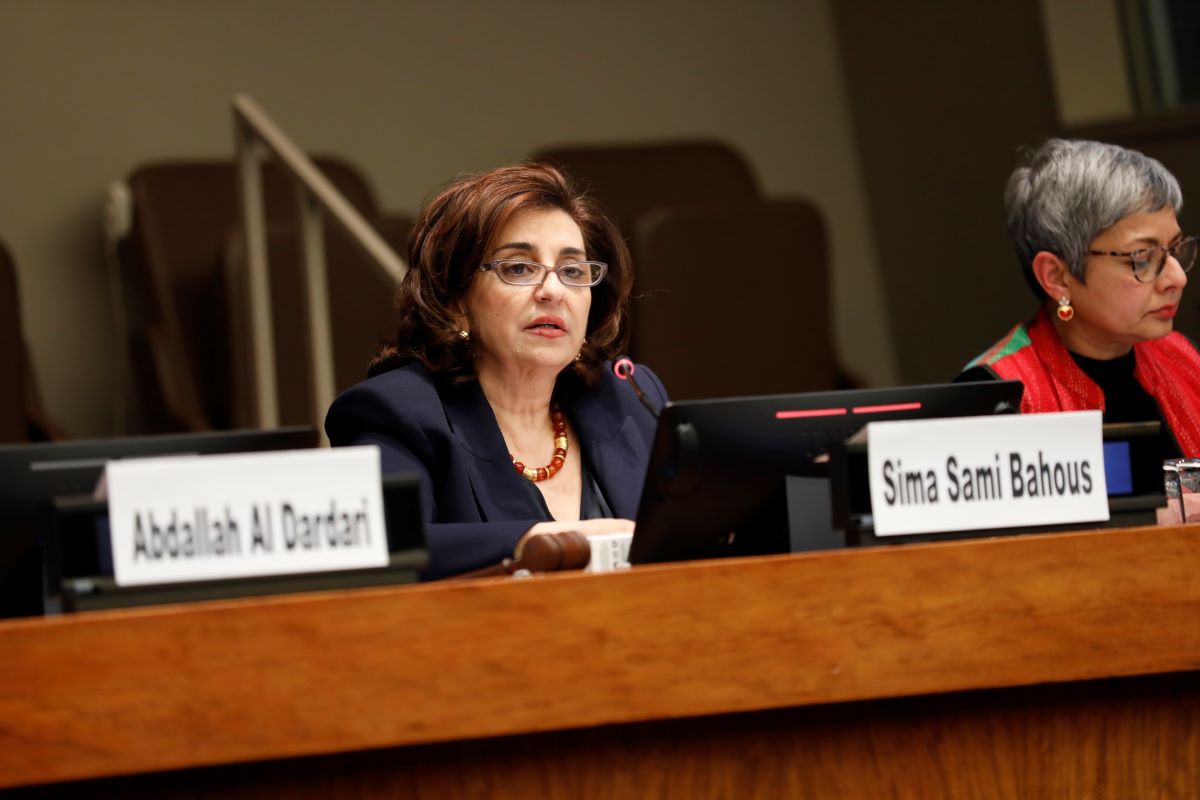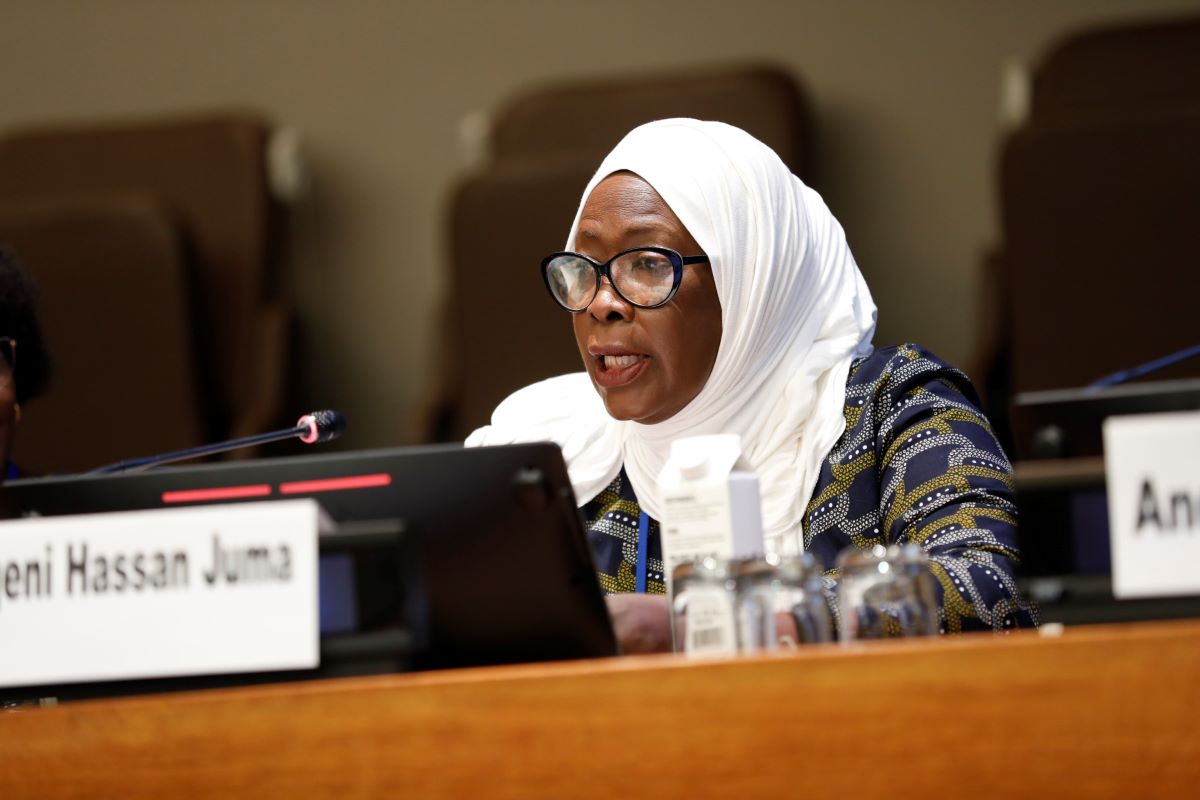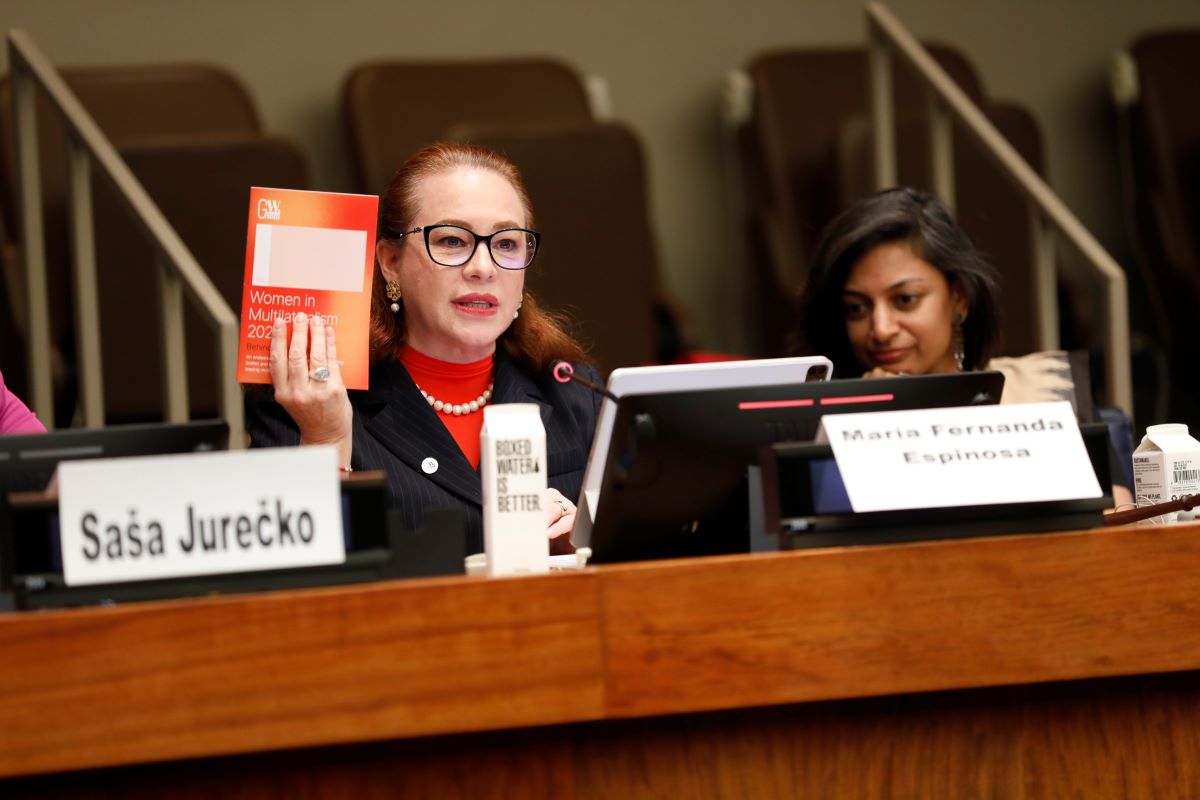More than 2 billion people, across more than 60 countries, will head to the polls in national and local elections in 2024. Amid concerns that democracy and gender equality are backsliding, these elections represent a watershed for pushing forward for gender equality.
On 20 March 2024, UN Women, in partnership with UNDP, UNFPA, and OHCHR, gathered partners to discuss strategies for advancing gender equality at "Multistakeholder Partnerships and Practices to Push Forward for Gender Equality, Human Rights, and Democracy", a flagship side event held at UN headquarters and online during the 68th session of the Commission on the Status of Women.
Pushing forward for gender equality: CSW68 event showcases strategies for countering pushback and advancing women's rights around the world

"We, collectively, know that the backlash against gender equality is on the rise", said Sima Bahous, Executive Director of UN Women, opening the discussion. "Long-established, universal human rights and women's rights frameworks are being challenged. Hard-won gender equality gains are at risk and already being reversed."
"Yet, we are not deterred", she continued. "Women human rights defenders, youth, civil society, parliamentarians, and public servants at all levels within governments and in multilateral organizations are working to push forward for gender equality in their communities and in their countries. They are working for peace, a planet in balance, and to advance the promises of the Sustainable Development Goals."
Co-opening the event, Abdallah Al Dardari, UNDP Assistant Secretary-General and Director of the Regional Bureau for Arab States, noted that "any rebound from COVID and the other polycrises in the world today cannot happen with the sliding back of women's rights" and highlighted the determination of UN agencies to push forward together.
Diene Keita, UNFPA Assistant Secretary-General, Deputy Executive Director (Programme), highlighted "the collective responsibility to provide effective solutions, including setting norms and policies for gender equality, despite growing crises and complex geopolitics", and spotlighted examples of UNFPA's commitment to pushing forward for gender equality through partnerships, including working with religious and traditional leaders to challenge harmful norms and stereotypes.
"The feminist movement and movements for women's rights continue relentlessly and strongly as a significant force for equality, building alliances across sectors and diverse groups", said Lopa Banerjee, Director of UN Women's Civil Society Division, who invited speakers to share their examples of work around the world.

Mgeni Hassan Juma, Deputy Speaker of the Zanzibar House of Representatives, and Anna Kulaya, National Coordinator of Women in Law and Development Africa (WiLDAF), shared insights from their collaboration involving the government, parliamentarians and civil society to prevent violence against women in politics especially ahead of Tanzania's upcoming elections.
Mgeni Hassan Juma cited a recent bill passed to categorize attacks on women in politics in Tanzania as election-related offences, calling it "a critical milestone that guarantees women's safety in the electoral process and therefore promotes their effective participation as candidates, voters, and election administrators."
The significance of a collective approach was highlighted by Arundhati Sridhar, Research Lead at Gender at Work India. She cited the example of the Feminist Leadership Lab, which brought 25 young leaders from across India to share expertise and collective strategies, including on engaging more meaningfully with electoral politics. A key impact of this approach, as Sridhar highlighted, was that it generated "two of the most precious resources for movement building: solidarity and hope."
As other speakers shared their experiences, common threads appeared relating to strategies and practices of building trust and consensus and ensuring the voice and experiences of women informed advocacy and policy development. For example, Andy Yentriyani, Chair of Indonesia's National Commission on Violence Against Women, shared how building coalitions-including survivor's groups, labour groups, law enforcement, and government officials-and taking careful efforts to enable constructive dialogue was influential in the passage of a 2022 law to provide protection from sexual violence.

Maria Fernanda Espinosa, Executive Director of GWL Voices for Changes and Inclusion, noted that since 1945 women have led the 54 main international organizations only 13 per cent of the time.
"In 78 years of history, the most representative body of the UN, the General Assembly, has had only four women as its President", she said. Espinosa advocated for gender equality within leadership positions of the multilateral system, proposing gender rotation for the presidency of the UN General Assembly to address the inequality gap.
Saša Jurečko, Deputy Permanent Representative from Permanent Mission of Slovenia to the UN, called on member states and stakeholders to support the demand for better representation of women in multilateralism and in leadership positions in the UN, noting "effective advocacy and change comes from working together."
Samira Asghari, member of the International Olympic Committee and former captain of the the Afghan women's national basketball team, and Isabelle Picco, Permanent Representative of Monaco to the UN and co-chair of the Group of Friends of Sport for Development and Peace, highlighted the transformative power of sport to push forward for gender equality, particularly for young women and girls.
Throughout the discussion, speakers from diverse backgrounds showcased the importance of collaborative efforts in countering backlash, advocating for legislative reform, and supporting women's movements. Common threads included the significance of building trust, fostering solidarity, and ensuring women's experiences inform change.






